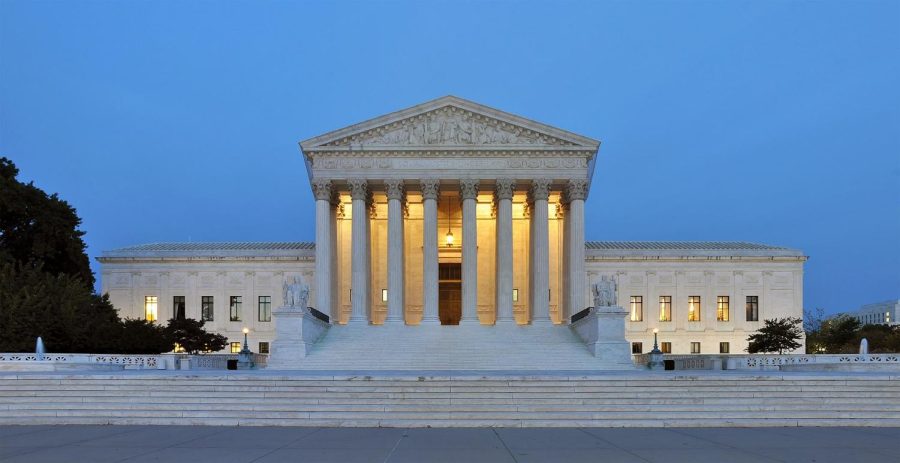Roe v. Wade affects teens more than people realize
Joe Ravi [Wiki Commons CC-BY-SA 3.0 ]
Pictured above is the Supreme Court of the United States. Since the court overturned Roe v. Wade this summer, many trigger laws went into effect across the country, limiting women’s access to abortions.
September 21, 2022
The threat against reproductive rights is current and alarming. Prior to June, 13 states had abortion trigger laws set forth with the thought of Roe v. Wade being overturned.
Mississippi is a state with some of the most restrictive rules. The most recent law for Mississippi states attempting and/or performing an abortion is considered a felony. The only exceptions are in the case of rape or life-threatening consequences for the mother; incest is not included in this list. This decision took away a major milestone for women’s rights.
For many teens, this poses a serious problem. Not only are teens at a higher risk of rape, but most don’t have the support system to handle a pregnancy. This could present itself as unsupportive parents, poor financial status or even a hateful community. This, along with the abortion ban, could lead to homelessness rates increasing, more teens dying at home from unsafe abortions and an increased number of high school dropouts. Studies show teens can average an income of $29,000 per year. The dilemma is it takes approximately $40,000 to raise a child as a single parent in Mississippi. This is not a healthy environment to raise a child in; most teens come to this realization, so they decide getting an abortion is the best option. In some cases, it might be the only option.
Even though the law says abortion is legal in the case of proven rape, most cases take months for a trial to pass. There is no way of knowing whether there will be enough time left to even have the abortion. Also, many teens do not file reports due to various reasons; the most common is internalized fear. A 2006 study shows about 232,960 women were raped or sexually assaulted. So many women and teenage girls have fallen victim to this, yet it will always be their fault when deciding to have an abortion. When the Supreme Court of the U.S. overturned Roe v. Wade, the justices were not considering the people they were putting in danger by banning abortion.
Many teens share their abortion stories, and they are never easy to tell. They tell of the trauma of going to abortion clinics and the amount of counseling required just to have an abortion. During this decision, their stories were not heard by the Supreme Court. They did not have a voice while their rights were being stripped away. The stories may vary, but one thing that stays constant was their goal not to kill a baby, but to preserve their quality of life for themselves. There is no win-win situation when every party suffers. Why does it seem as though the U.S. government cares more about a fetus than its actual citizens?









